Podcast: Play in new window | Download
Subscribe: Apple Podcasts | Spotify | Amazon Music | iHeartRadio | Email | TuneIn | RSS
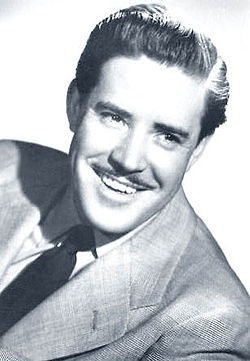
Nick comes across a murder at an art museum on his way home and decides to solve it.
Original Air Date: December 7, 1947
Podcast: Play in new window | Download
Subscribe: Apple Podcasts | Spotify | Amazon Music | iHeartRadio | Email | TuneIn | RSS

Nick comes across a murder at an art museum on his way home and decides to solve it.
Original Air Date: December 7, 1947
Podcast: Play in new window | Download
Subscribe: Apple Podcasts | Spotify | Amazon Music | iHeartRadio | Email | TuneIn | RSS
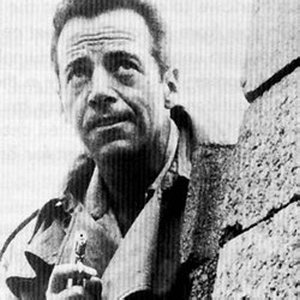
An Amnesiac woman turns to Marlowe to find out who she is and why she thinks she should be in Vancouver, BC.
Original Air Date: October 8, 1949
Podcast: Play in new window | Download
Subscribe: Apple Podcasts | Spotify | Amazon Music | iHeartRadio | Email | TuneIn | RSS
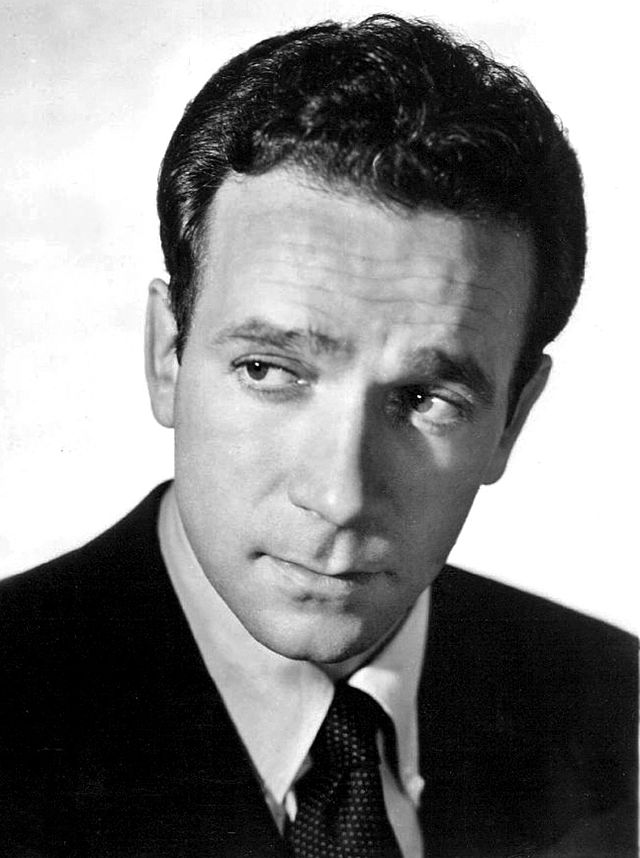
A woman hires Pete to prove her uncle didn’t commit suicide.
Original Air Date: September 7, 1954
Support the show.
Podcast: Play in new window | Download
Subscribe: Apple Podcasts | Spotify | Amazon Music | iHeartRadio | Email | TuneIn | RSS
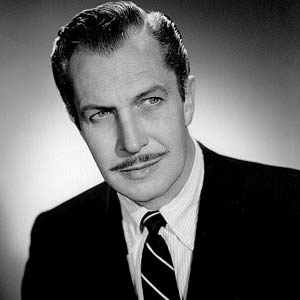
A woman shows up at Simon’s apartment threatening to shoot him unless he gives her a photo of her sister which he doesn’t have.
Original Air Date: November 26, 1950
Support the show
Podcast: Play in new window | Download
Subscribe: Apple Podcasts | Spotify | Amazon Music | iHeartRadio | Email | TuneIn | RSS
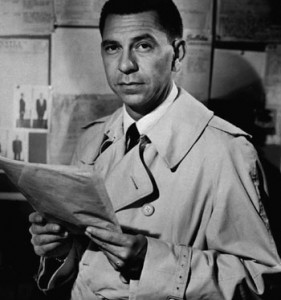
Friday and Romero are called in when reports to a murderess’ parole officer are being forged and they find the friend whose custody the murderess was released to is missing.
Original Air Date: March 9, 1950
Support the show.
While the second to last Philip Marlowe novel was the longest, the last was the shortest, coming in at about 170 pages in its most recent reprint.
In it, Marlowe is hired by an attorney to follow a woman with very little explantion. He follows her to Esmerelda, a fictionalized version of LaJolla.
There Marlowe encounters blackmail and a corpse that disappears from the balcony of the woman he was hired to follow.
All things considered, this is a book that I wish Raymond Chandler hadn’t bothered to right. The beginning is promising, but 2/3 through the story begins to collapse.
Chandler, at his finest wrote involved and complex tales of mystery. There was always more than meets the eye to a Chandler mystery. Here, there is far less. I literally said out loud, “That’s it!” and tossed the book aside until my determination to finish books I start compelled me to read on.
Chandler’s characters are also far flatter than in previous works. You won’t find any characters who approach the level of those in other novels. There’s no one like General Sternwood, Moose Malloy, Bill Chess, or Terry Lennox in this entire novel.
While the dialogue isn’t as good as in other books, there’s still a few decent lines in this one and that’s one saving grace.
And then there are the other issues of Marlowe’s encounters with two different women. Thankfully, there’s nothing shown, which is the most artful thing about this portion of the book. The writing by Chandler is just embarrassing. The dialogue is awful, and the set up is clumsy. The relationship with Linda Loring in The Long Goodbye is elevated to some high exalted status of her being an old flame, when she just came over for an evening before leaving town.
Worse than that, Marlowe admits that sleeping with one of the women was unethical as an Investigator and then it does it anyway and it’s not like there’s some psychological reason for it or an internal struggle that Marlowe’s better nature loses, there’s no reason at all given. At the end of the book, it appears that all that remains of the ethical core of Marlowe from The Big Sleep is an eccentric aversion to taking money for getting himself beaten up and inconvenienced.
The book is sad because it shows how much of a toll alcoholism and depression took on a great author. It’s one of the worst books written about a classic detective by his actual creator. It’s the one Marlowe book that’s never been made into a movie and hopefully never will be. It’s a forgettable or at least I hope it is as I’ll certainly be doing my best to forget it.
Rating: 1.75 out of 5.00
If you enjoyed this post, you can have new posts about Detective stories and the golden age of radio and television delivered automatically to your Kindle.
This post contains affiliate links, which means that items purchased from these links may result in a commission being paid to the author of this post at no extra cost to the purchase
Podcast: Play in new window | Download
Subscribe: Apple Podcasts | Spotify | Amazon Music | iHeartRadio | Email | TuneIn | RSS
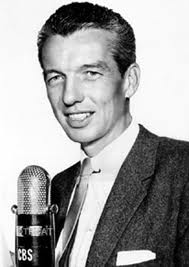
Johnny is called to investigate an unusual insurance policy.
Original Air Date: November 24, 1957
When making your travel plans, remember http://johnnydollarair.com
Podcast: Play in new window | Download
Subscribe: Apple Podcasts | Spotify | Amazon Music | iHeartRadio | Email | TuneIn | RSS

Nick investigates the murder of Scubby’s chess by mail partner.
Original Air Date: November 30, 1947
Podcast: Play in new window | Download
Subscribe: Apple Podcasts | Spotify | Amazon Music | iHeartRadio | Email | TuneIn | RSS

Marlowe is hired by a man in a coma with only vague information as to what he’s looking for, only that whatever it is involves $75,000.
Original Air Date: October 1, 1949
Podcast: Play in new window | Download
Subscribe: Apple Podcasts | Spotify | Amazon Music | iHeartRadio | Email | TuneIn | RSS

Pete investigates the murder of a night club band leader and symphony.
Original Air Date: August 31, 1954
Support the listener show.
Podcast: Play in new window | Download
Subscribe: Apple Podcasts | Spotify | Amazon Music | iHeartRadio | Email | TuneIn | RSS

A young prisoner who has turned to the Saint for help breaks out of prison after the latest attempt on his life.
Original Air Date: November 19, 1950
Support the show.
Podcast: Play in new window | Download
Subscribe: Apple Podcasts | Spotify | Amazon Music | iHeartRadio | Email | TuneIn | RSS

Friday and Romero search for a cop killer.
Original Air Date: March 2, 1950
Support the show.
To see my review of the film, click here.
I Was a Communist for the FBI was a syndicated radio show produced by Ziv and began to air in 1952 and ‘53 with Dana Andrews playing Matt Cvetic with 78 separate broadcasts prepared with only a few repeats. While the film focused on the end of Cvetic’s career, this focused on the beginning and middle.
The important thing to understand about the I Was a Communist for the FBI radio show is that it had far less to do with the real Cvetic than the film. This is subtly hinted at at the end of the program with lines like, “Many of the incidents portrayed are based on the experiences of Matt Cvetic…” which also meant that many were not.
Ziv often did programs were the lead character was based on a real person but the incidents and stories were mostly works of fiction. This could be seen in Ziv’s 1959-61 Television series, “Lock Up.” There really was an attorney named Herbert L. Maris but the televised version’s exploits had little to do with the real life Philadelphia lawyer.
The fact of the matter is that no real person’s life has enough interesting juicy incidents to make up seventy-eight television or radio episodes. This in part explains the “unreal” nature of, I Was a Communist for the FBI which will have Cvetic trying to take over a Boy Scout troop in one episode, escorting a Soviet Agent around in another, trying to reform the image of a Communist front group in another, and in yet another being tasked with sabotaging early computer technology. While the fictional Cvetic’s exploits are rarely unreal, it’s hard to swallow that the same man got all of these assignments. However, the format of the show requires a suspension of disbelief similar to how we accept Joe Friday changing departments every week on Dragnet.
At their best, episodes of I Was a Communist for the FBI manage to portray tactics that Communists used in America or in other countries. While the movie’s communist leaders were bald-faced opportunists, the cell group leaders in the radio show are mostly fanatics (though occasionally hypocritical ones) The Communist Party of the radio is far more like a cult than a political party as members deride “Borgeois sentimentality” and demand absolute obedience and dedication to the party. The ruthlessness of the party plays out more in the radio than the film because of the greater scope and variety of the episodes because we see so many different episodes. The communists are willing to blackmail, steal, or murder. They’ll turn a father’s son against him to keep him in line. While publicly championing the little guy, they’ll crush anyone who gets in their way.
It also featured a great psychological element. For Cvetic, the fear of discovery is constant. The Communists don’t trust each other in the first place as he’s frequently followed by fellow “comrades” and even has his phone tapped and listened to. He faces tough questions. Does he help someone who sounds like she might want to leave the party or does he act like a “good party” member in the belief that she’s testing him?
In one episode he’s gotten into the bad habit of talking in his sleep and to his horror finds out that the Comrade he’s staying at happens to record the room at night. At the same time, the FBI often doesn’t tell Cvetic everything or he can’t make contact. All this makes Cvetic constantly on edge In one episode, Cvetic was diagnosed with hypertension which is something that anyone who followed the series could readily believe.
The theme of isolation and self-loathing is here just like the film, though its more intimate as Cvetic’s narration carries the story. The episode loops around eventually to one thought, “I’m a Communist for the FBI and I walk alone.”
The series, like most other great Ziv shows in the era featured solid production values and most great radio talent of the era appeared including Gerald Mohr, Virginia Gregg, and Harry Bartel. Olan Soule played Agent Beaker of the FBI with many actors playing party bosses and official. The best of these was William Conrad who portrayed the gruff and sinister Comrade Revchinko.
Most of the episodes had a very similar cadence of Cvetic being given an assignment by the Communists and him trying to undermine it with the help of the FBI. One exception to that was, “The Black Gospel” in which the villain was a nihilist who threatened to out Cvetic as an FBI informant unless he went along with their anarchist scheme.
The series was not without flaws. It managed to undercut its own point in a couple of ways. First and foremost, if you’re going to portray the Communists as such an existential threat, it would be more believable if these fictional foes weren’t so unbelievably thick. Cvetic is constantly involved in operations in which everyone else is arrested or the Party’s ends are defeated. Over the course of more than seventy episodes and the Party is constantly giving him commendations while never considering that everything they put him on falls apart. By contrast, in the film, Cvetic succeeded as a Communist and was thus able to provide information to the FBI by gaining the Party’s confidence through success.
While the series included some very plausible Communist plots, there are a few stories that have premises that are a little too silly. I could see Communists trying to gain access to early computers and sabotage U.S. research. I have a little more trouble with a Communist plot to take over the local 4H club. (Yes, seriously.) There was also the episode where Cvetic got a Communist front group to give blood and Revchinko insisted on having Communist goons hijack the Red Cross truck and steal the blood, so that the blood wouldn’t get to the distribution center because that’s worth risking exposure and the capture of an operative.
In the end, I Was a Communist for the FBI is worthwhile series. It succeeded in portraying Communism the soul-crushing system it was that left more than 100 million dead in its wake and brilliantly showed the mental strain that double age and informants for the FBI faced. It has tense suspenseful moments found However, it’s quality is hampered by repetitive and occasionally contrived stories that make the Communists seem hapless. Still, it’s a unique series in the golden age of radio that makes for an enjoyable listen.
Rating: 3.75 out of 5.0
If you enjoyed this post, you can have new posts about Detective stories and the golden age of radio and television delivered automatically to your Kindle.
Podcast: Play in new window | Download
Subscribe: Apple Podcasts | Spotify | Amazon Music | iHeartRadio | Email | TuneIn | RSS

Johnny tries to find a beneficiary of a life insurance policy who faces an unrelated murder charge.
Original Air Date: November 17, 1957
When making your travel plans, remember http://johnnydollarair.com
Podcast: Play in new window | Download
Subscribe: Apple Podcasts | Spotify | Amazon Music | iHeartRadio | Email | TuneIn | RSS

A banker showing erratic behavior asks Carter to find $20,000 that he forgot what he did with it. Nick Carter is suspicious nothing more sinister afoot.
Original Air Date: November 23, 1947
Support the show.